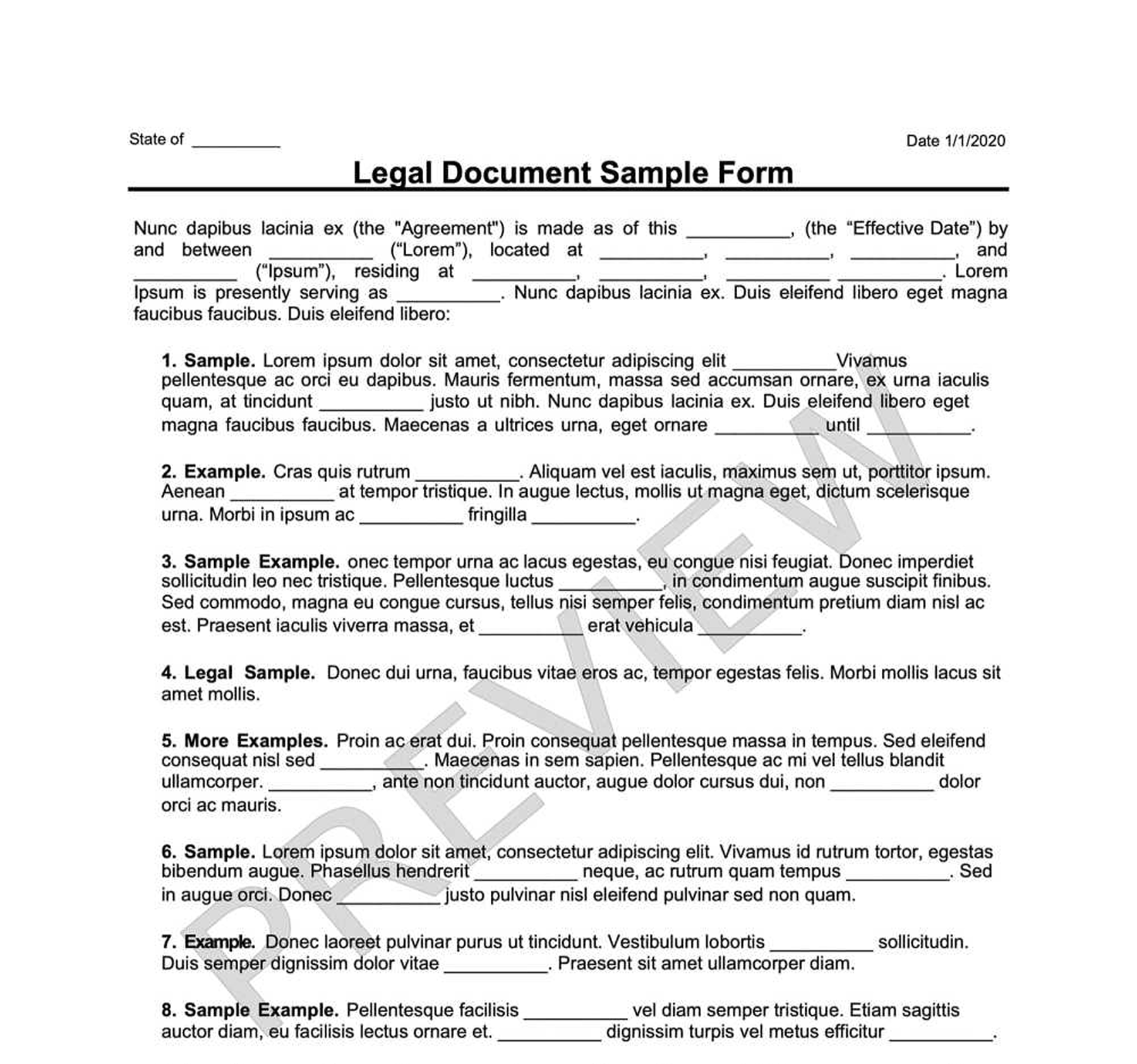Rent Deferral Agreement
A Rent Deferral Agreement between a landlord and a tenant changes the rent provision in the lease agreement such that the tenant can defer the payment of rent in full or in part until later.

How it Works
Build your selected document.
Answer a few simple questions with step-by-step instructions.
Print & download forms instantly. Sign & make it legal.
What Is a Rent Deferral Agreement?
If a tenant has temporary financial problems, they may ask the landlord for a Rent Deferral Agreement.
The agreement allows the tenant to pay a lower monthly rate for the designated period in deferment later, as defined in the Rent Deferral Agreement.
What Is a Rent Deferral Agreement?
A Rent Deferral Agreement modifies the original lease agreement between a landlord and a tenant so the tenant can pay a reduced rental rate for a period, to be topped off in full later, potentially with interest.
Other Names for Rent Deferral Agreement
Depending on your state, a Rent Deferral Agreement may also be known as:
-
Landlord and Tenant Deferment Agreement
-
Tenant Rent Deferral Agreement
Who Needs a Rent Deferral Agreement
A tenant can ask the landlord for a Rent Deferral Agreement if they need to postpone the monthly rent. Both residential and commercial tenants can use rent Deferral Agreements.
Why Use Swyft Forms for Your Rent Deferral Agreement
Customized for you, by you
Create your own documents by answering our easy-to-understand questionnaires to get exactly what you need out of your Rent Deferral Agreement.
Specific to Your Jurisdiction
Laws vary by location. Each document on Swyft Forms is customized for your state.
How to Create a Rent Deferral Agreement with Swyft Forms
Your Rent Deferral Agreement must be precise, and the best way to get everything right is to use Swyft Forms. Fill out the form and create the document in just a few minutes.
Let Swyft Forms help with our extensive library of attorney-vetted legal forms. The process is fast and easy. All you have to do is fill out our easy-to-understand questionnaire. Once complete, simply download your form as a PDF or Word document from your secure online account.
What Information Will I Need to Create My Rent Deferral Agreement?
To create your document, please provide:
-
Date: The date when the Rent Deferral Agreement is to be executed.
-
Original Rental Agreement: Define the beginning and the end of the effective lease agreement. Indicate if the deal is for a residential or commercial property.
-
Premises: Full address and description of the premises identified in the rental agreement.
-
Landlord information: Full name and address of the landlord. Select if the landlord is an individual or business/organization entity.
-
Tenant information: Full name and address of the tenant. Select if there is a guarantor in the lease agreement.
-
Select the reason for rent deferral: Reasons may include economic hardship, COVID-19, and force majeure. You can also define a custom reason.
-
Rent Deferral: Describe the current rent period and regular rent amount before selecting full or partial deferral.
-
Other amounts: Enter if the tenant is supposed to pay the landlord for additional obligations. They can also be deferred.
-
Deferral period: Enter the beginning and end of the deferred rent payment as agreed, including the number of payments deferred.
-
Rent Repayment: Define how the deferred payments will be satisfied.
-
Dispute Resolution: Define the preferred dispute resolution method, such as arbitration and court of law. This includes the local governing jurisdiction.
Rent Deferral Agreement Terms
-
Guarantor: An organization or person guaranteeing against nonpayment. The guarantor is responsible if the primarily liable party is unable to meet liabilities.
-
Landlord: A person or organization owning the rental property in question.
-
Tenant: A person or organization who rents the property from the landlord.
-
Force majeure: In this context, this is an unforeseeable circumstance preventing the tenant from fulfilling the lease agreement.
Rent Deferral Agreement Signing Requirements
A Rent Deferral Agreement needs to be signed by the tenant and landlord. For any entity tenant or landlord, an authorized representative will sign the document. It is not required to be notarized, but you can do so as a precaution against future challenges to the signatures.
What to Do with Your Rent Deferral Agreement
After printing and signing the document, the landlord and tenant should each have a copy of the form for safe-keeping. The landlord may ask for other documents from a commercial tenant as proof of temporary business disruption.
Other Names for Rent Deferral Agreement
- Rent Deferral Agreement Form
- Rent Deferral Agreement Document
- Rent Deferral Agreement Agreement
- Rent Deferral Agreement Contract
- Rent Deferral Agreement Template
- Rent Deferral Agreement Checklist
Who Needs a Rent Deferral Agreement?
Why Use Swyft Forms for Your Rent Deferral Agreement
Customized for you, by you
Specific to Your Jurisdiction
Why choose Swyft Forms?
Create professional documents for thousands of purposes.
Make unlimited documents and revisions.
Our documents are vetted by lawyers and are applicable to all 50 states.
